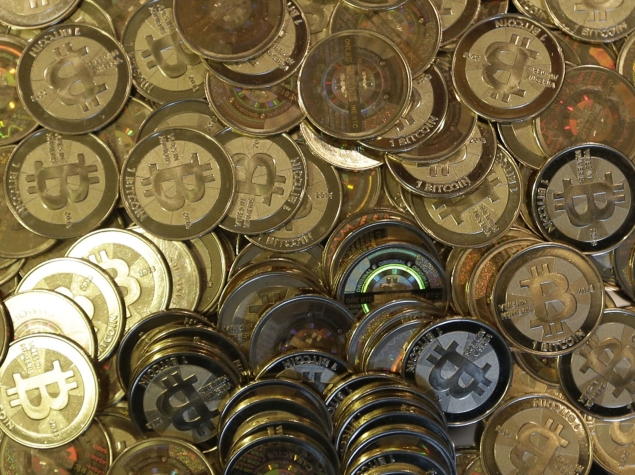- Home
- Internet
- Internet News
- Bitcoin exchange MtGox placed in administration: CEO
Bitcoin exchange MtGox placed in administration: CEO

"The Tokyo District Court decided Wednesday to dismiss the application for commencement of a civil rehabilitation and at the same time, an order for Provisional Administration was issued," a statement from CEO Mark Karpeles said.
(Also see: Mt. Gox bankruptcy investigation extended by Tokyo court till May 9)
"Attorney-at-law Nobuaki Kobayashi (Supervisor and Examiner under the Civil Rehabilitation Procedure) was appointed Provisional Administrator,"
The move means Karpeles, the controversial founder of what was at one time the world's biggest trading place for the virtual currency, will cede control of the company to Kobayashi.
"I, as the provisional administrator, will administer the assets of the Company under the supervision of the Tokyo District Court," said a statement in Kobayashi's name posted on the MtGox website.
(Also see: Mt. Gox CEO ordered to US for questions on failed Bitcoin exchange)
"I will strive to fairly and equitably administer the company's assets, both domestically and internationally, by attempting to utilise certain foreign procedures, including a Chapter 15 filing in the United States of America.
"The future outlook is that, although it is subject to the decision by the Tokyo District Court, it is expected that the commencement of bankruptcy proceedings will be ordered."
Kobayashi said the future of the business of the Bitcoin exchange was not clear.
"After the bankruptcy proceedings commence, it will be unlikely that the Company can restart the exchange," said his statement.
"The treatment of the exchange business is expected to be decided by taking into consideration the various matters including whether there is any proper buyer candidate who can assume the business and how to transfer the business to such buyer."
Private credit research firm Teikoku Databank put MtGox's liabilities at about 6.5 billion yen ($64 million).
The sudden freeze of the MtGox exchange earlier this threw the global Bitcoin community into paroxysms and provoked huge volatility in an already-volatile currency.
The exchange went dark suddenly in February, shortly after it stopped Bitcoin withdrawals, claiming there was a bug in the software that underpins the virtual currency, making it vulnerable to thieves.
(Also see: Mt. Gox faced 150,000 DDoS attacks per second ahead of crash: Report)
It filed for bankruptcy protection shortly after, saying it had lost 850,000 coins, which were worth nearly $500 million at the time. It made a similar filing in the United States in early March.
The company said last month it had handed over documents to the Tokyo police, after it found 200,000 of the lost coins in a "cold wallet" a storage device, such as a memory stick, that is not connected to other computers.
Unlike traditional currencies backed by central banks, Bitcoin is generated by complex chains of interactions among a huge network of computers around the planet.
After trading for cents per Bitcoin for the first two years of its existence, it began a frenzied climb in 2011 that took it to $40 a coin in late 2012 and to $1,100 last year. It is currently trading at around $505.
The unit's relative anonymity and lack of regulation has been attacked by critics who fear it could be used to finance organised crime or terrorism.
Get your daily dose of tech news, reviews, and insights, in under 80 characters on Gadgets 360 Turbo. Connect with fellow tech lovers on our Forum. Follow us on X, Facebook, WhatsApp, Threads and Google News for instant updates. Catch all the action on our YouTube channel.
Related Stories
- Samsung Galaxy Unpacked 2025
- ChatGPT
- Redmi Note 14 Pro+
- iPhone 16
- Apple Vision Pro
- Oneplus 12
- OnePlus Nord CE 3 Lite 5G
- iPhone 13
- Xiaomi 14 Pro
- Oppo Find N3
- Tecno Spark Go (2023)
- Realme V30
- Best Phones Under 25000
- Samsung Galaxy S24 Series
- Cryptocurrency
- iQoo 12
- Samsung Galaxy S24 Ultra
- Giottus
- Samsung Galaxy Z Flip 5
- Apple 'Scary Fast'
- Housefull 5
- GoPro Hero 12 Black Review
- Invincible Season 2
- JioGlass
- HD Ready TV
- Laptop Under 50000
- Smartwatch Under 10000
- Latest Mobile Phones
- Compare Phones
- OPPO A6v 5G
- OPPO A6i+ 5G
- Realme 16 5G
- Redmi Turbo 5
- Redmi Turbo 5 Max
- Moto G77
- Moto G67
- Realme P4 Power 5G
- HP HyperX Omen 15
- Acer Chromebook 311 (2026)
- Lenovo Idea Tab Plus
- Realme Pad 3
- HMD Watch P1
- HMD Watch X1
- Haier H5E Series
- Acerpure Nitro Z Series 100-inch QLED TV
- Asus ROG Ally
- Nintendo Switch Lite
- Haier 1.6 Ton 5 Star Inverter Split AC (HSU19G-MZAID5BN-INV)
- Haier 1.6 Ton 5 Star Inverter Split AC (HSU19G-MZAIM5BN-INV)

















